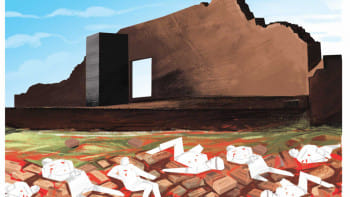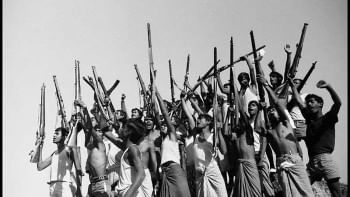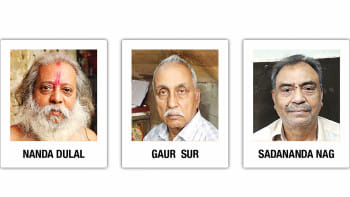Why won’t the UN recognise 1971 genocide?

We join the PM's call to the United Nations to recognise March 25 as the International Genocide Day. The failure of the UN to officially recognise the genocide of 1971 has long been a painful reality for the people of Bangladesh. It is mindboggling that despite overwhelming evidence of the atrocities committed by the Pakistani Army against unarmed civilians of East Pakistan (now Bangladesh) – which included the most brutal forms of torture, murder and sexual violence, driven by racial hatred and bigotry – the UN has consistently chosen not to term these crimes against humanity as genocide. This in the backdrop of the international body recognising other genocides, such as those in Armenia, Bosnia, Cambodia and Rwanda.
The acts listed by the 1948 Genocide Convention that constitute genocide include killing members of a group, causing serious bodily or mental harm to members of the group, and deliberately inflicting on the group conditions of life calculated to bring about its physical destruction in whole or in part. All these acts and many more were committed in 1971, as a state unleashed unspeakable horror on its own citizens. By all standards, these acts constitute genocide. So why this illogical refusal to recognise it as such?
Most significantly, the Bangladesh genocide of 1971 was amply documented by foreign media outlets and journalists covering the war then. Pakistani journalist Anthony Mascarenhas published a detailed report titled "Genocide" which was published in the UK's Sunday Times on June 13, 1971. An article in the Time magazine, published in August 1971, quoted a US official who referred to the anti-Bengali racism as being the fuel that made the soldiers "willing executioners". The chilling accounts of Archer K Blood, the US consul general in Dhaka at the time, describe the horrific sight of bodies of women who had been raped, shot and hung by the heels in the ceilings of Rokeya Hall. There were other foreign correspondents on the ground, such as Simon Dring and Mark Tully, who reported extensively on Pakistani brutalities.
In addition, there have been countless books, newspaper articles and reports based on eyewitness accounts of what happened during the nine months of the Liberation War. The details of "Operation Searchlight", which systematically targeted Bengalis (especially of Hindu faith), have been documented in numerous books, journals and newspapers. It included seeking out intellectuals, picking them up with the help of local collaborators, and subjecting them to merciless torture before killing them.
Are these facts/evidence not authentic enough for the UN to recognise the genocide?
Even after 52 years, Pakistan has not formally apologised for the crimes of its army. It has not tried the 195 war criminals identified by Bangladesh in 1972. It is, therefore, incumbent on the UN to recognise the genocide in Bangladesh. Pakistan must offer its unconditional apology and commitment to try the war criminals who were part of this diabolical plan to eliminate a race. The International Court of Justice (ICJ) has enough material to put on trial the main perpetrators behind the genocide. The UN and the ICJ have a moral obligation to recognise and seek justice for this genocide.


 For all latest news, follow The Daily Star's Google News channel.
For all latest news, follow The Daily Star's Google News channel. 










Comments